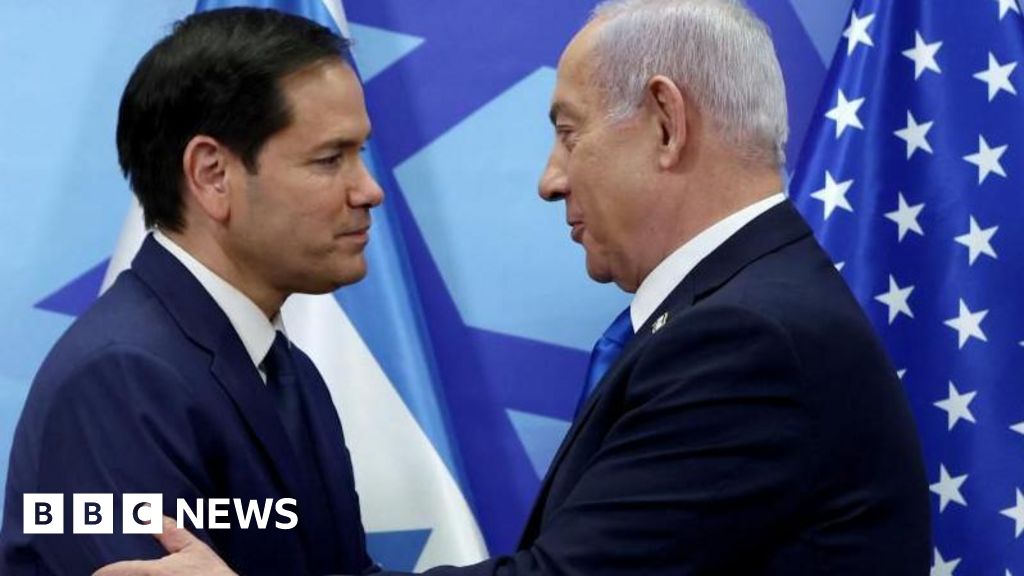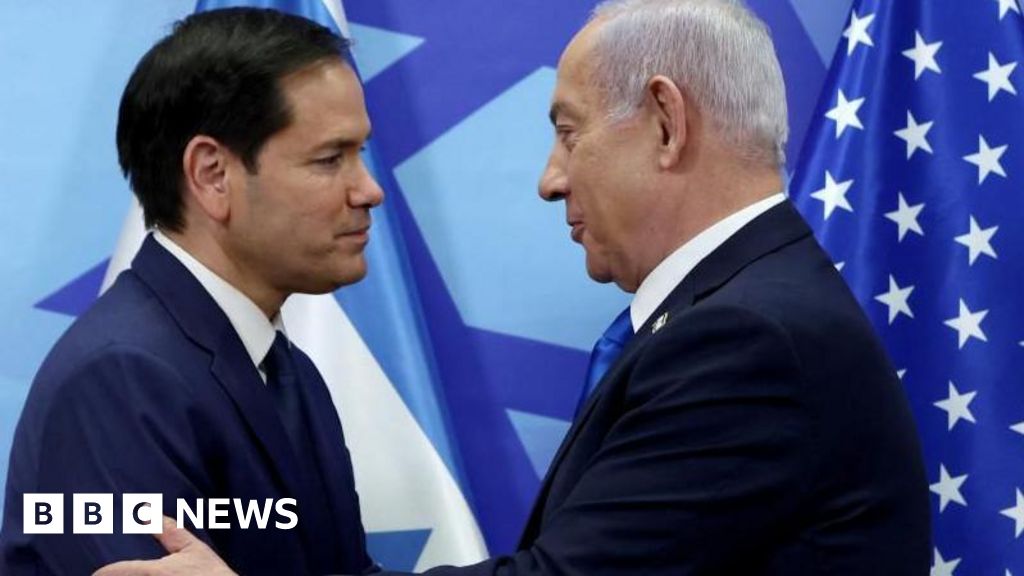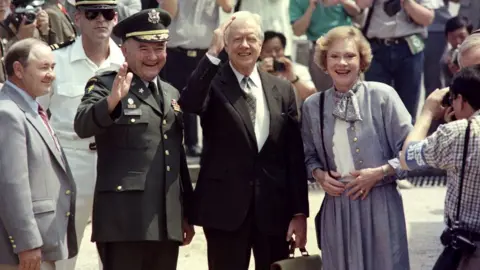
Israeli Prime Minister Benjamin Netanyahu said he is working in “full cooperation” with the US on a “common strategy” for Gaza, after talks with US Secretary of State Marco Rubio.
Netanyahu praised US President Donald Trump’s “bold vision” for Gaza’s future and said he and Rubio had discussed ways to “ensure that future becomes a reality”.
Trump’s much-criticised plan for the US to take over Gaza and resettle its population, has been ruled out by Palestinians and Arab nations.
Rubio said the plan may have “shocked and surprised” people, but that it took “courage” for Trump to propose an alternative to the “tired ideas” of the past.
Rubio is visiting Israel on his first tour of the Middle East as the US’s top diplomat. He also plans to meet Russian officials in Saudi Arabia in the coming days to discuss ending the war in Ukraine.
Speaking at a news conference in Jerusalem after their meeting, Rubio and Netanyahu outlined areas of agreement, including a desire to eradicate Hamas’s governing capacity, prevent Iran from gaining a nuclear weapon, and to monitor developments in a post-Assad Syria.
Netanyahu also condemned what he called “lawfare” from the International Criminal Court (ICC), which he said “outrageously libelled” Israel.
He thanked the US administration for issuing sanctions against the ICC, which last year issued an arrest warrant for Netanyahu over alleged war crimes in Gaza – which Israel denies – as well as a top Hamas commander.
The US and Israel had a common position on Gaza, Netanyahu said, as he warned that the “gates of hell” would be opened if all Israeli hostages were not released.
“Hamas can not continue as a military or government force,” Rubio added. “And as long as it stands as a force that can govern or administer or a force that can threaten by use of violence, peace becomes impossible.”
Rubio’s visit comes after a shipment of American-made heavy bombs arrived in Israel overnight.
Israel’s Defence Minister Israel Katz said his country had received a delivery of MK-84 bombs from the US late on Saturday, after Trump overturned a block on exporting the munitions placed by his predecessor, Joe Biden.
Biden initially shipped thousands of MK-84s to Israel after Hamas’s 7 October 2023 attack, but later declined to clear the bombs for export out of concern for their impact on Gaza. The powerful 2,000-pound bombs have a wide blast radius and can rip through concrete and metal, destroying entire buildings.
Katz said the shipment represented a “significant asset” for the Israel Defense Forces (IDF) and served as evidence of the “strong alliance between Israel and the United States”.
Fears had been high that the fragile ceasefire agreement in Gaza could collapse, after a dispute over a planned hostage release, which was nearly aborted but ultimately went ahead on Saturday.



